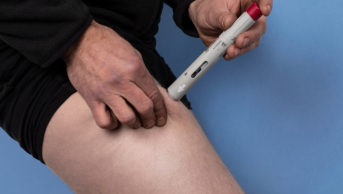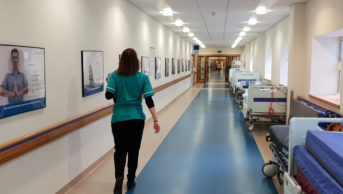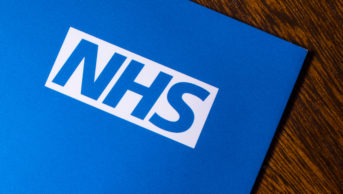
Nadia Attura / Royal Pharmaceutical Society
NHS 111 referrals to pharmacy have more than doubled since 2015, according to data from NHS England.
In April 2015, fewer than 1 caller in 100 to NHS 111 was advised to speak to a pharmacist specifically, with little change since the service was introduced nationally in 2013. However, figures for April 2018 show that referrals to pharmacy stood at around 2.5% of total NHS 111 referrals.
Of the calls referred to pharmacy in April 2018, 1.6% were urgent repeat prescription referrals to community pharmacies providing the NHS Urgent Medicine Supply Advanced Service (NUMSAS), which was developed to provide a community pharmacy emergency supply service via NHS 11.
The data, which were shared with The Pharmaceutical Journal at the beginning of July 2018, also showed that just under 1% of calls were signposted to a pharmacy for self-care advice or access to a local service, including referrals to the Digital Minor Illness Service (DMIRS), which is commissioned as a local enhanced service.
Just over 0.2% of calls referred to pharmacists were to the Integrated Care Clinical Assessment Service, which enables patients who require clinical input to speak directly to an appropriate member of the multidisciplinary team, who will seek to complete the call there and then or transfer the patient elsewhere.
Keith Ridge, chief pharmaceutical officer for England, said NHS England is “very pleased” with the increase in referrals to pharmacy that had been achieved so far.
“These increasing referrals from NHS 111 to local pharmacies are having a positive impact in ensuring patients receive appropriate and timely clinical care for minor health concerns while at the same time allowing more access to appointments for others who need to see a GP,” he said.
Ridge added that NHS England did not have targets for increasing the referrals from NHS 111 further and that the current focus was on “operational development and not on reaching particular targets”.
A spokesperson for NHS England said that, as well as referrals to pharmacy, prescribing pharmacists were increasingly being employed directly within NHS 111 and/or the Integrated Care Clinical Assessment Service to provide advice and self-care to many patients and onward referral to those who require it.
The NUMSAS and DMIRS pilot schemes were developed with money from the Pharmacy Integration Fund. NUMSAS was phased in from December 2016 and is scheduled to run until the end of September 2018.
DMIRS was piloted initially in the North East of England, but in May 2018 it was announced that it would be extended to London, Devon and the East Midlands. Since the beginning of the DMIRS pilot scheme, 6,000 patients, representing approximately 2% of the NHS 111 call volume in the North East, have been directed to community pharmacy rather than to emergency departments or GP surgeries. Previously, just 0.1% of NHS 111 calls went to community pharmacy.
Of those referred to pharmacy via the service, almost two-thirds attended the pharmacy, of which 31% received advice and over-the-counter medicine, while another 31% received just advice, 12% were directed to a GP and 12% to an out-of-hours appointment or walk-in centre.
Ridge said that the extension of the DMIRS service was “likely” to increase referrals to community pharmacy even further.


